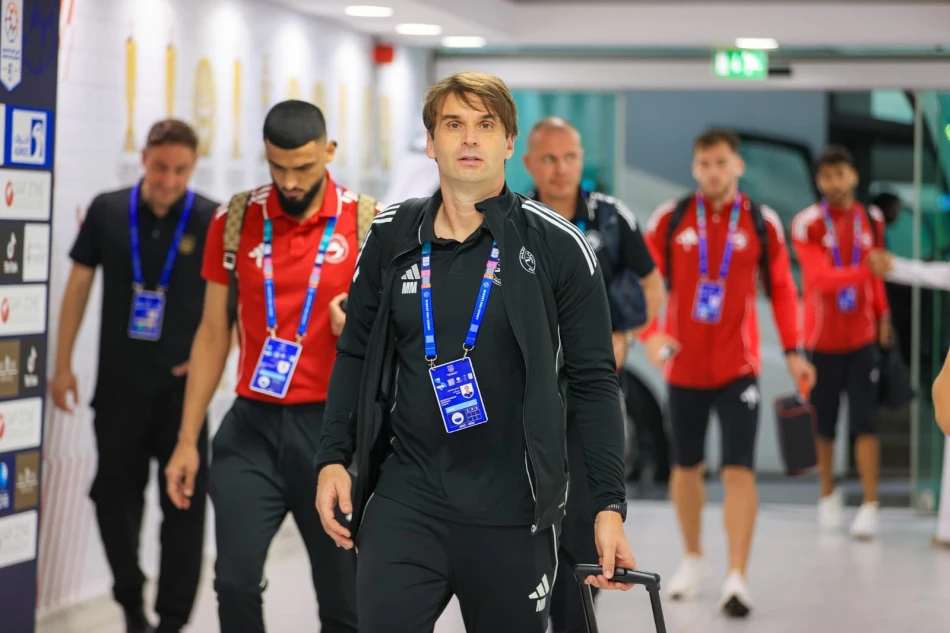
Milosh Reveals Technical Issue Facing Sharjah Ahead of Al-Gharrafa Clash
Sharjah's New Serbian Coach Faces Pressure as AFC Champions League Elite Campaign Begins
Al Sharjah's Serbian coach Miloš enters Monday's AFC Champions League Elite opener against Qatar's Al-Gharafa under significant pressure, but remains confident his team can compete for Asia's premier club trophy despite ongoing squad transitions and injury concerns. The match marks a crucial test for the UAE club's continental ambitions in what many consider the region's most competitive tournament.
High Stakes in Asia's Premier Club Competition
The AFC Champions League Elite represents the pinnacle of Asian club football, drawing the continent's strongest teams into intense group-stage battles where typically 10-11 points are needed to advance to the knockout rounds. For Sharjah, this campaign carries extra weight as they seek to establish themselves among Asia's elite clubs while navigating significant changes both on and off the pitch.
Miloš described the tournament as "the most important competition in Asia" and expressed ambitious goals for his squad, stating that Sharjah possesses the quality to win the title outright. However, he acknowledged the immense challenge ahead, particularly given the presence of three Saudi Arabian powerhouses – Al-Ahli, Al-Hilal, and Al-Ittihad – whom he labeled as "extremely strong and serious contenders."
Transitional Period Creates Uncertainty
The Serbian tactician inherited a team in flux after replacing Romanian coach Olario Cosmin, who had left his mark on the club over several years. This coaching transition represents more than a simple personnel change – it signals a shift in tactical philosophy and training methodology that requires time to fully implement.
"There are transitional phases from one school to another," Miloš explained, referring to the adjustment period needed when switching coaching approaches. While he emphasized that significant squad changes wouldn't serve as excuses, he noted the challenge of integrating new systems while managing player availability issues.
Squad Management and Injury Concerns
Player fitness emerges as a critical factor in Sharjah's continental campaign. Several key squad members are returning from long-term injuries, creating a delicate balancing act for the coaching staff. Miloš stressed his commitment to player welfare, stating he won't risk any individual who isn't "100% ready" – a cautious approach that could impact team selection for crucial matches.
This conservative injury management philosophy, while protecting long-term player health, potentially limits tactical options during the demanding group stage schedule. The AFC Champions League Elite's compressed format leaves little room for gradual player reintegration, forcing coaches to make difficult decisions about squad rotation and risk management.
Familiar Opponents and Tactical Challenges
Monday's opponents Al-Gharafa bring their own pedigree under Portuguese coach Pedro Martínez, whom Miloš knows well from previous AFC Champions League encounters when Martínez coached Al-Wasl. This familiarity cuts both ways – while Miloš understands his counterpart's tactical preferences, Martínez equally knows what to expect from Sharjah's approach.
The mutual respect between the coaches adds an intriguing subplot to what promises to be a tactically sophisticated encounter. Both teams enter with realistic qualification hopes, making this opening fixture potentially decisive for group standings.
Regional Competition Intensifies
Sharjah's continental ambitions unfold against a backdrop of escalating investment and competition across Gulf football. Saudi Arabia's recent sports sector transformation has elevated their clubs' profiles significantly, while UAE teams like Sharjah must leverage tactical discipline and squad cohesion to compete with larger budgets and star-studded lineups.
The presence of three Saudi clubs among the tournament favorites reflects the kingdom's broader sports strategy, but also creates opportunities for well-organized teams to exploit potential complacency. Miloš's emphasis on team unity and systematic preparation suggests Sharjah plans to compete through collective strength rather than individual brilliance.
Success in this campaign could significantly boost Sharjah's regional standing and provide valuable experience for future continental competitions. Conversely, early elimination would raise questions about the club's ability to compete consistently at Asia's highest level, particularly given the ongoing transitional period under new management.
Most Viewed News

 Sara Khaled
Sara Khaled






